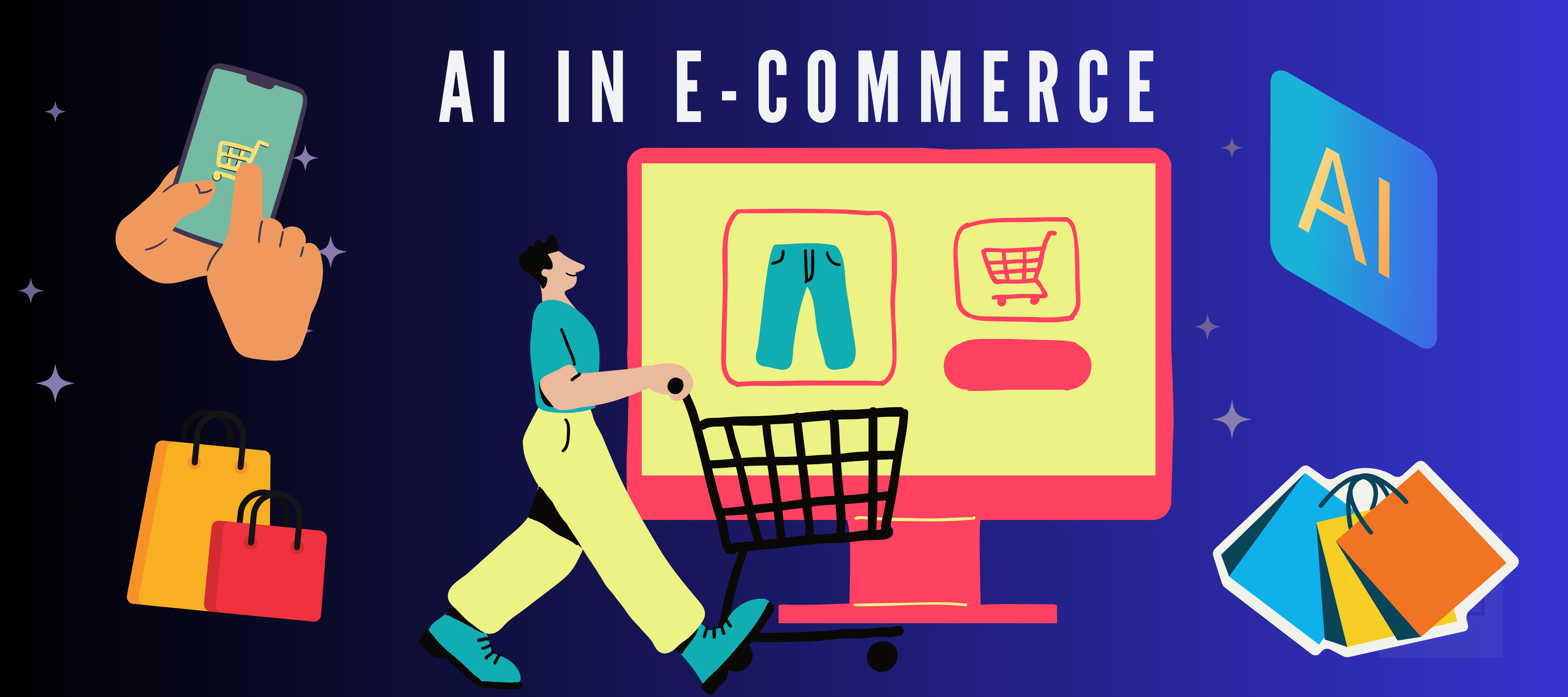Artificial Intelligence (AI) is revolutionizing e-commerce by delivering highly personalized shopping experiences. With AI E-commerce Personalization, businesses can tailor product recommendations, content, and pricing to each individual, enhancing customer satisfaction and driving revenue growth.
The Role of AI in E-commerce: An Overview
AI’s role in e-commerce is multifaceted, impacting everything from customer service to inventory management. However, one of the most significant contributions of AI to the industry is in creating personalized shopping experiences. By analyzing vast amounts of data, AI can tailor product recommendations, content, and even pricing to individual customers, making their shopping journey more engaging and efficient.
AI E-commerce Personalization: Transforming Product Recommendations
AI E-commerce Personalization is reshaping how consumers discover products online. By analyzing user data, AI suggests items that match individual preferences, leading to higher conversion rates and customer satisfaction.
For example, Amazon uses AI to power its recommendation engine, which is responsible for a significant portion of its sales. According to research, AI-driven recommendations can increase conversion rates by up to 915% .
The Role of AI E-commerce Personalization in Customer Service
AI E-commerce Personalization is also enhancing customer service. Chatbots and virtual assistants use AI to provide personalized support, guiding customers through the shopping process and resolving their issues efficiently.
For instance, H&M uses AI chatbots to assist customers with product inquiries and recommendations. These chatbots analyze customer data to provide personalized suggestions, enhancing the overall shopping experience.
AI E-commerce Personalization in Dynamic Pricing Strategies
Dynamic pricing, powered by AI E-commerce Personalization, allows businesses to adjust prices in real-time based on market trends and customer behavior, ensuring competitive pricing and maximizing profits.
For example, Airbnb uses AI to adjust rental prices based on factors such as location, seasonality, and market demand. This approach ensures that prices are optimized for both hosts and guests, leading to increased bookings and revenue.
AI E-commerce Personalization: Enhancing Search and Discovery
AI E-commerce Personalization improves search functionality on e-commerce platforms by delivering relevant and personalized search results, making it easier for customers to find what they need.
Pinterest is a leader in visual search technology, allowing users to search for products by simply uploading a photo. This AI-driven feature enhances the shopping experience by providing more accurate and personalized results.
Inventory Management: How AI is Streamlining Operations
AI’s impact on e-commerce isn’t limited to the customer-facing side; it’s also transforming backend operations like inventory management. AI can predict demand, optimize stock levels, and reduce waste by analyzing sales data, seasonal trends, and other variables.
For instance, Zara uses AI to manage its inventory, ensuring that popular items are always in stock while minimizing overstock of less popular products. This not only improves customer satisfaction but also reduces operational costs.
Personalization Beyond Products: AI in Content and Marketing
AI is not just personalizing product recommendations; it’s also tailoring content and marketing efforts to individual customers. AI algorithms can determine which marketing messages, emails, or content will resonate most with a particular customer based on their past behavior and preferences.
Netflix is a prime example of how AI is used to personalize content. By analyzing viewing habits, Netflix recommends shows and movies that match users’ tastes, keeping them engaged and subscribed longer.
The Benefits of AI-Driven Personalized Shopping
The integration of AI in e-commerce offers numerous benefits for both businesses and customers. For businesses, AI-driven personalization can lead to higher conversion rates, increased customer loyalty, and improved operational efficiency. For customers, it means a more enjoyable, efficient, and tailored shopping experience.
- Increased Sales: Personalized recommendations and dynamic pricing strategies drive sales by offering customers products they are more likely to purchase.
- Customer Retention: AI helps create a more personalized experience, which can lead to higher customer satisfaction and loyalty.
- Efficiency: AI streamlines operations such as inventory management and customer service, allowing businesses to operate more efficiently.
Future Trends: What’s Next for AI in E-commerce?
The future of AI in e-commerce looks promising, with advancements in areas such as augmented reality (AR), voice commerce, and predictive analytics. As AI technology continues to evolve, we can expect even more personalized and immersive shopping experiences.
- Augmented Reality (AR): AI-powered AR is set to revolutionize online shopping by allowing customers to visualize products in their real environment before making a purchase. This technology is particularly useful for industries like fashion and home decor.
- Voice Commerce: AI-driven voice assistants like Amazon Alexa are making it possible for customers to shop using voice commands, offering a hands-free, personalized shopping experience.
- Predictive Analytics: AI will continue to enhance predictive analytics, helping businesses anticipate customer needs and trends, ultimately leading to more effective marketing strategies and inventory management.
Conclusion
AI is undeniably revolutionizing the e-commerce industry, particularly in the area of personalized shopping experiences. By leveraging AI, businesses can offer customers tailored recommendations, optimized pricing, and efficient customer service, all of which contribute to a more engaging and satisfying shopping journey. As AI technology continues to advance, the possibilities for personalization in e-commerce are limitless.





Pingback: AI-Powered Virtual Assistants: Revolutionizing the Future of Work and Daily Life - Post Array